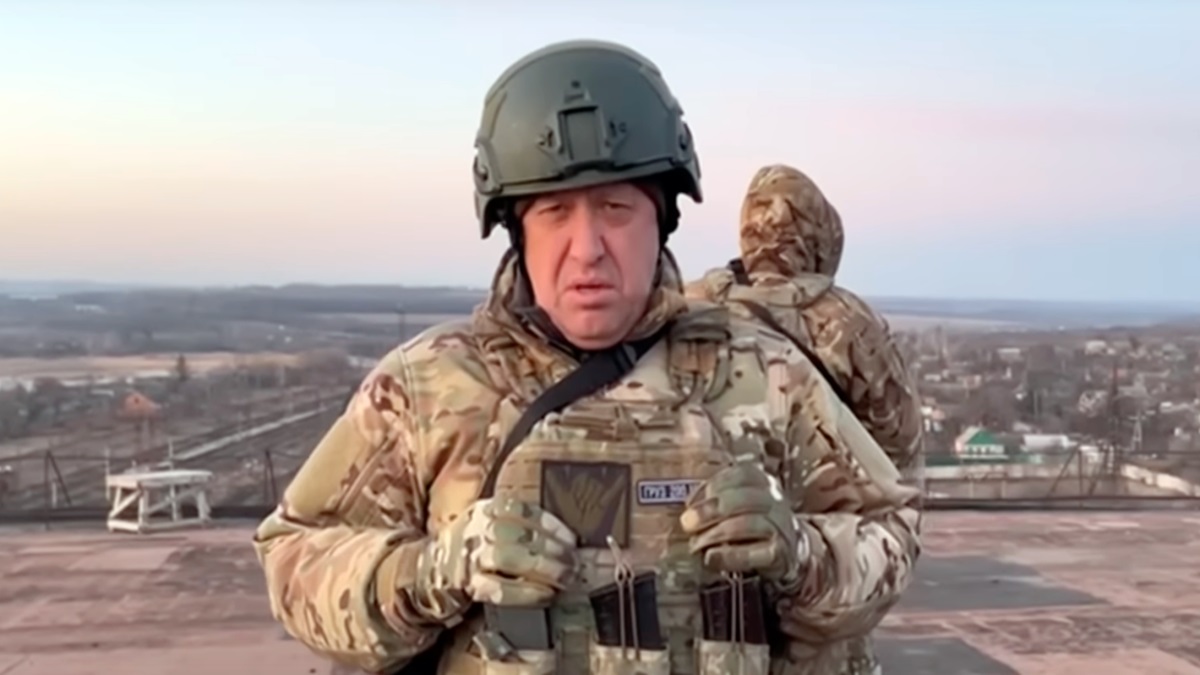Why Nepali Gorkhas Are Joining Russian Mercenary Group Wagner
International
oi-Sanjeev Nayak

Reports are trickling in that scores of Nepali Gorkhas are joining Russian mercenary group Wagner these days. Especially Nepali youths, enticed by the prospect of Russian citizenship and better opportunities, have joined the private military company (PMC) based in Russia as contract soldiers, following a recent change in Russian citizenship regulations.
On May 16 this year, Russia simplified the process of getting its citizenship for foreigners after one year of military service during the ongoing war with Ukraine. However, apart from lucre of Russian citizenship, the development is seen as basically a fallout of dwindling job prospects in Nepal and its new policy for recruitment in Indian Army.

While most of the Nepali citizens joining Wagner PMC are youths, there are many retired Nepali Army personnel among them too. The Nepal government has been caught off guard as it doesn’t have any bilateral pacts with Russia, and the Nepal Embassy in Moscow has been claiming that the youngsters are going in their “personal” capacity, according to an EurAsian Times report.
Over a dozen Nepali youths are being trained in handling weapons and fighting. This trend started after Russian President Putin signed a decree simplifying the process of obtaining Russian citizenship for foreign nationals who join its ranks in its war with Ukraine. Kremlin calls it a “special military operation” offering citizenship to the family members of these foreigners as well.
It is an offer that is too hard for the unemployment-stricken Nepali youngsters to resist, with the unemployment rate at as high as 11.12 per cent in the Himalayan nation. To make this easier for them, the Wagner group has also waived the requirement of knowing the Russian language; now even English suffices.
 Wagner Mercenary Chief Issues Defiant Audio Statement As Uncertainty Swirls After Mutiny
Wagner Mercenary Chief Issues Defiant Audio Statement As Uncertainty Swirls After Mutiny
According to the International Labour Organisation, Nepal is a young country, with 63.7 per cent of the total population below the age of 30. The unemployment rate of youth aged 15-29 is 19.2 per cent. Over 4,00,000 young people are estimated to enter the labour force annually.
A major reason behind such a high unemployment rate among the Nepali youth is that not a single Nepalese Gurkha was able to join the Indian Army this year as the communist government in Nepal has decided not to allow the recruitment of the 1,300-odd Gorkhas who join the Indian Army annually.
The Indian Army has been lucrative for the Nepalese youth as the payment has been 2.5 times than that of the Nepalese Army, and the pension provides economic and social security. The job in the Indian Army also provides Nepalese nationals with the option to settle down in India.
The Nepalis are known for their warrior streaks. Gorkha, respected globally as the fiercest soldier, has been recruited in the Indian Army and the British Army since 1815. The British had raised Gorkha regiments and they fought bravely in various military expeditions.
“This is a concerning situation. The Nepal government is not able to do anything about it as they have gone in an individual capacity,” the EurAsian Times quoted strategic analyst Major General Binoj Basnyat, who has retired from the Nepal Army, as saying.
“If Nepalese citizens are part of the military forces of a sovereign nation, it has to be part of the government’s foreign policy, or there has to be a Memorandum of Understanding or a treaty with the other country. No such instruments are in place in this case,” he added, maintaining that the Nepal government needs to address it at the earliest.
Several videos have surfaced on social media sites for the past few weeks, showing Nepali youths joining the Russian Army. In these videos, they can be seen taking training or going to the training location. Some of these videos are shot by the Nepali youths themselves.
In the case of one of the youngsters from Koshi region in Nepal, he was studying in a Russian university and his visa is going to expire soon. He elucidates that he had two options after finishing his studies — either return to Nepal and be unemployed or get a job in the Russian Army.
 Who Averted Bloodbath In Russia, Making Wagner Chief Pull Back His Troops?
Who Averted Bloodbath In Russia, Making Wagner Chief Pull Back His Troops?
“We are being taught how to use modern weapons. Training takes place throughout the day and sometimes even at night. Even during the training period, the salary is about 50,000 Nepalese rupees, along with insurance. If I don’t die in one year, I will live here,” the youth says without revealing his identity.
Another case of a youth from the Karnali region leaving the Nepalese Army to join the mercenaries in Russia has come to light. His training in his home country’s Army also came in handy in securing a place with the Russian forces. “We are in a place with mountains like Nepal. I am here with about 200 foreigners and three Nepali friends,” the youth from Karnali was quoted as saying.
Story first published: Thursday, June 29, 2023, 11:13 [IST]
For all the latest World News Click Here
For the latest news and updates, follow us on Google News.


